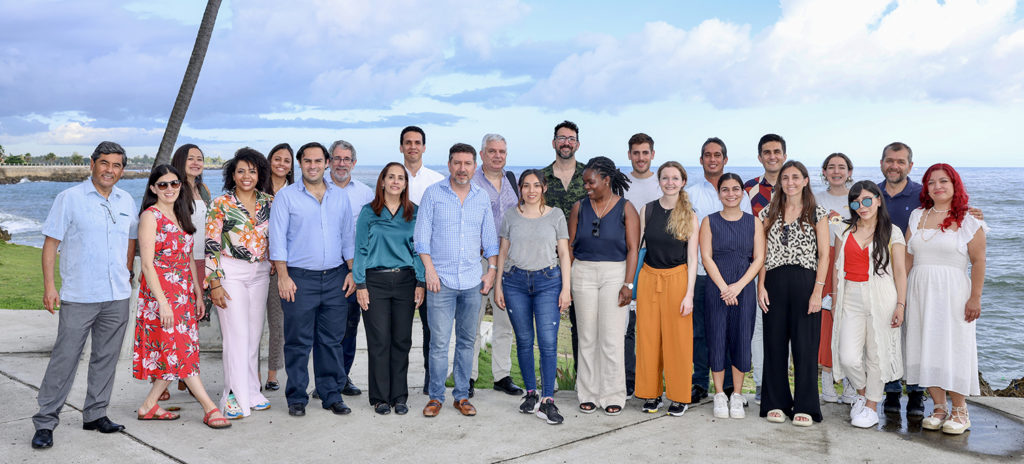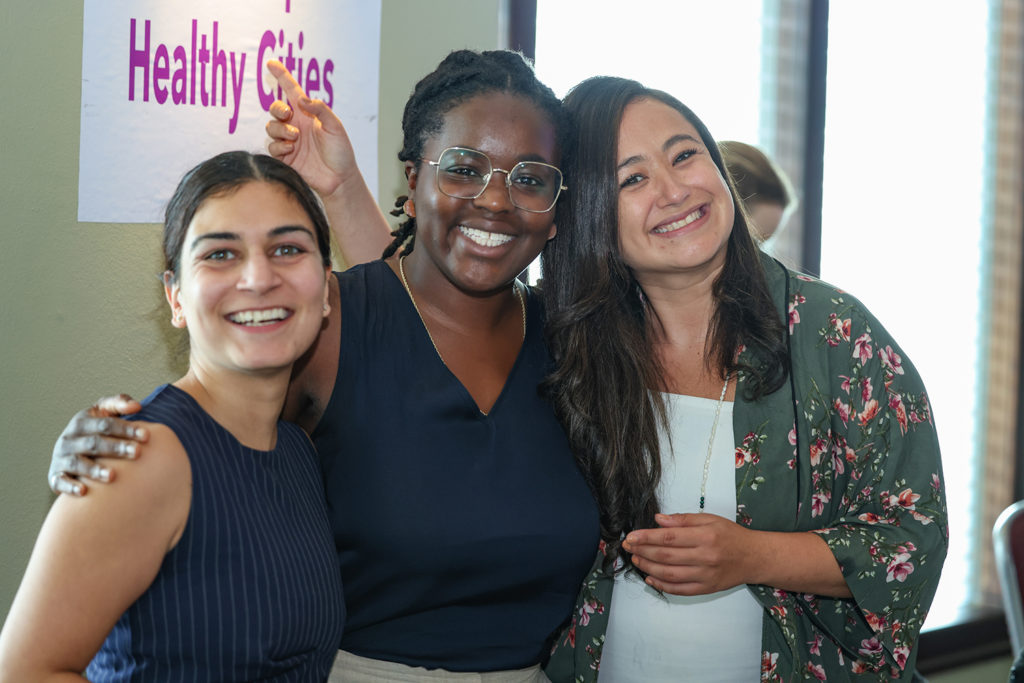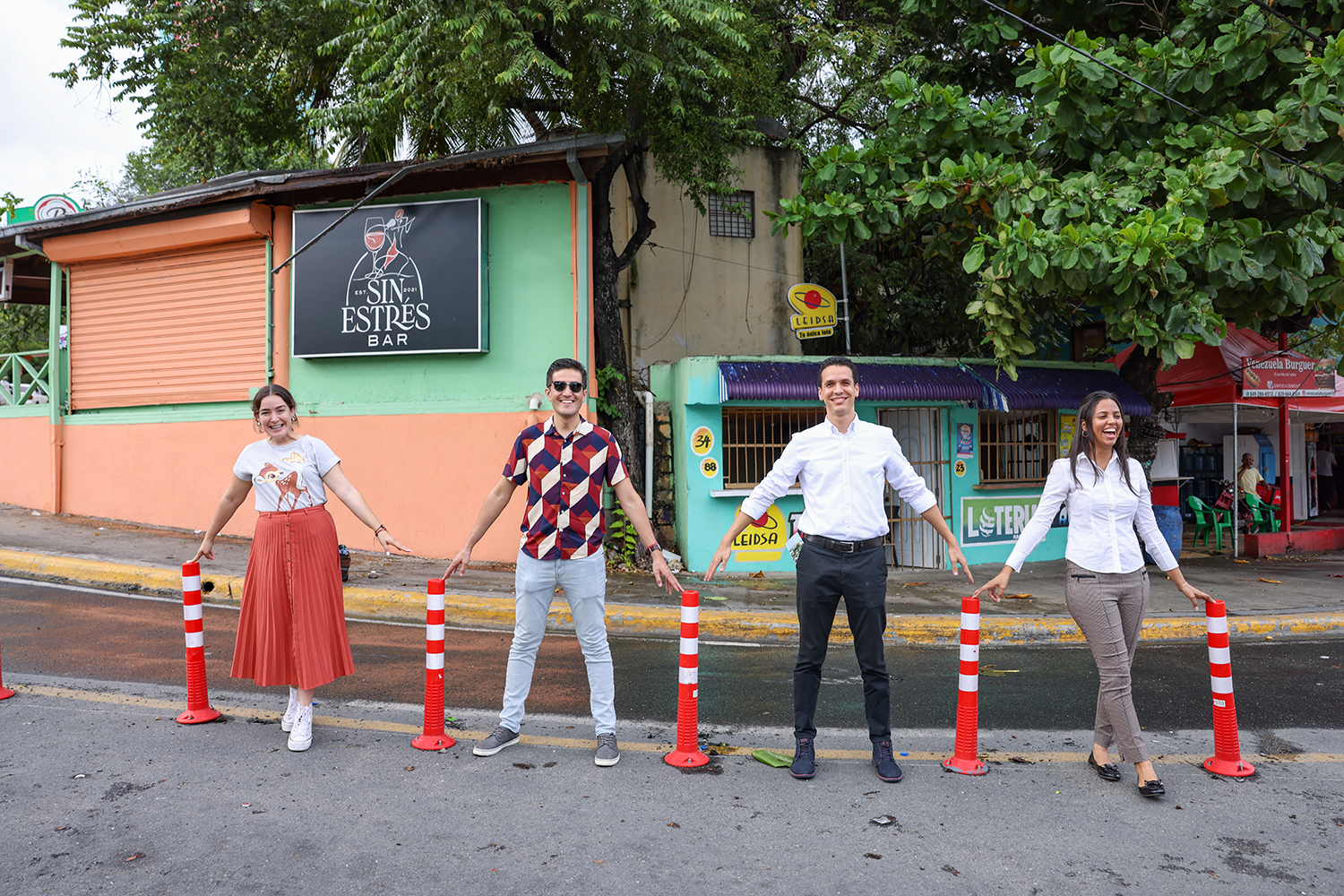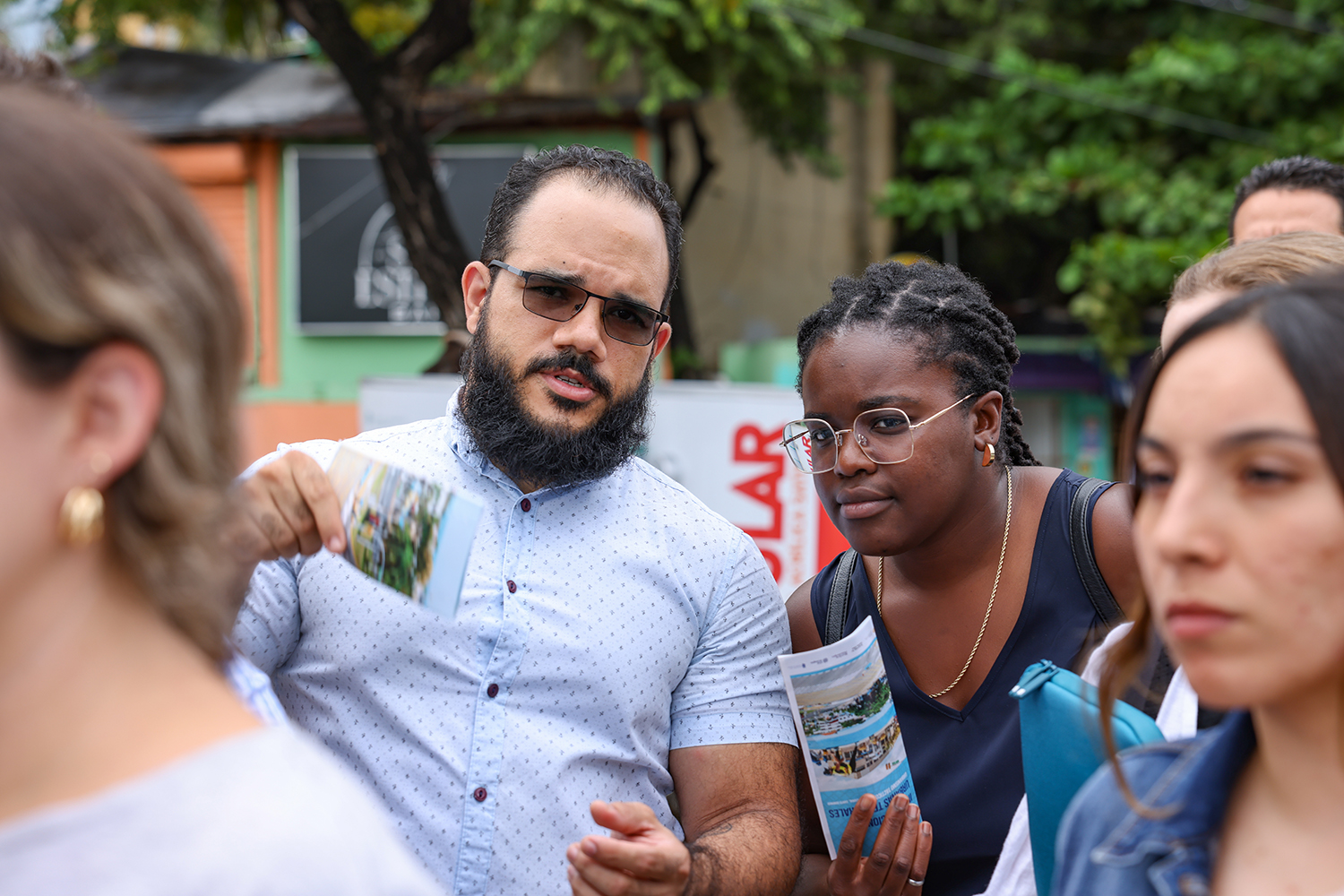
One year into a new policymaking program for city governments, six Latin America cities in the Partnership for Healthy Cities network convened in Santo Domingo, Dominican Republic late last year to share progress on building public support and other strategic goals for passing new public health laws.
Representatives from Córdoba, Argentina; Santiago, Chile; Medellín, Colombia; Santo Domingo, Dominican Republic; Quito, Ecuador; and Guadalajara, Mexico were joined at the meeting by Vital Strategies, World Health Organization (WHO) and Pan American Health Organization (PAHO) staff.
Get Our Latest Public Health News
Join our email list and be the first to know about our public health news, publications and interviews with experts.
The six Latin American cities are among a total of 13 worldwide currently participating in the Partnership’s Policy Accelerator program. The program, launched in 2021, is comprised of intensive technical assistance, trainings and peer-to-peer discussions on every step of the policy process—from how to garner public support to legal and budgetary considerations. The 13 cities involved are pursuing a range of public health and safety goals such as making their downtown areas smoke-free, reducing traffic fatalities and getting schoolchildren to drink more water and fewer sugary drinks.


Participants in the Partnership convening reported returning home with new ideas for winning passage of their Policy Accelerator proposals in local city councils—expected in coming months in a handful of the cities. In the meantime, applications for a second cohort of cities are due January 18th.
About the Partnership for Healthy Cities:
The Partnership for Healthy Cities is a prestigious global network of cities committed to saving lives by preventing noncommunicable diseases (NCDs) and injuries. Supported by Bloomberg Philanthropies in partnership with WHO, as well as Vital Strategies, this initiative enables cities around the world to deliver a high-impact policy or programmatic intervention to reduce NCDs and injuries in their communities.
For more information, visit: www.cities4health.org and https://partnershipforhealthycities.bloomberg.org/



